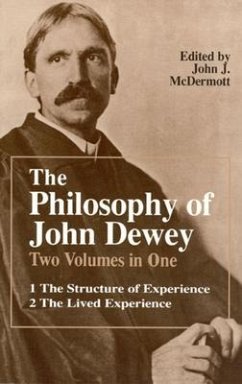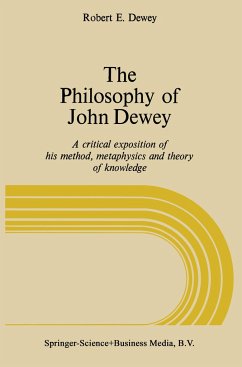This edition combines in one book the two volumes previously published separately. Volume 1, 'The Structure of Experience, ' contains essays on metaphysics, the logic of inquiry, the problem of knowledge, and value theory. In volume 2, 'The Lived Experience, ' Dewey's writings on pedagogy, ethics, the aesthetics of the 'live creature, ' politics, and the philosophy of culture are presented.
Hinweis: Dieser Artikel kann nur an eine deutsche Lieferadresse ausgeliefert werden.
Hinweis: Dieser Artikel kann nur an eine deutsche Lieferadresse ausgeliefert werden.








